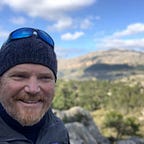Exploring the Systems View of Life with Fritjof Capra (Part 1 of 3)
Conversation between Fritjof Capra and Daniel Wahl, Feb. 2020
On Monday 17th, February 2020, I had the wonderful opportunity to interview a man who has been a huge influence on my thinking and my path in life. In the late 1990s I first started reading the books of Fritjof Capra and it was his work and that of Joanna Macy and John Seed that lead me to find out about Schumacher College and decide to do my Masters in Holistic Science there in 2001/2002. This was also when I first met Fritjof.
- What made you leave your successful career in research physics and start to become a student of ecology and life as a planetary process?
Fritjof reflects on his life journey towards becoming a student of life. How after he received his Phd in Physics in the early 60s he was strongly influenced by the cultural movements of the time. He recalls the time as a period of an expansion of consciousness in both the social and spiritual dimension. The later lead him to explore the many parallels between the understanding of the universe of Eastern wisdom traditions like Taoism, the Vedanta and Zen Buddhism and modern physics. This led him to write his international best selling book The Tao of Physics in 1975.
It was through the influence of Gregory Bateson during long conversations the two of them had at Esalen in the 1970s that Capra began to see the importance of ecology and a systems approach to ecology in understanding life. Under the mentorship of the microbiologist Lynn Margulis — famous for her work on endosymbiosis and Gaia theory together with James Lovelock — that Fritjof began to deepen is organic, dynamic systems understanding of life as a planetary process.
Fritjof already spoke about the ‘Systsms View of Life’ on is 1982 book ‘The Turning Point’ and spent the next 30 years building that grand synthesis of a new conception of life in terms of networks, patterns, and relationships. This synthesis was eventually published as ‘The Systems View of Life: A Unifying Vision’ which Fritof co-authored with his friend Pier Luigi Luisi (2014).
(up to minute 7:30 in the video below)
2) Are you hopeful when you look at how things have changed and have failed to change since you wrote The Turning Point in the early 1980s?
… Fritjof’s reply explored the broad patterns of change in the 70s, 80s, and 90s and how they contributed to and at points delayed transformative change …
“Hope is not the conviction that something will turn out well, but the certainty that something makes sense regardless of how it turns out.” — Václav Havel
3) We met at Schumacher College in 2001, what do you appreciate about the work of the college that makes you teach there on a regular basis?
… we both end up signing the praise of this amazing place that has offer transformative education for so many people (including myself) …
4) Could you share a little bit about the Capra Course, what it covers, how it is structured, and how it has served the people who have joined it and are now part of the alumni network?
(From minute 20 onwards) Fritjof explains the structure and the content of the Capra Course on ‘The Systems View of Life’ that is based on the book he co-authored with Pier Luigi Luisi. It takes students through a process of integrating the four dimensions of the ‘systems view of life’: the biological, the cognitive, the social, and the ecological.
The course consists of 12 pre-recorded lectures, each at of about 40 minutes. Participants can watch these and read through some additional reading material each week and then discuss their learning on an online forum with the other students. Every day for half an hour to an hour Fritjof looks at the discussions and questions raised on the forum and actively participates with comments and additional references and links.
One of the really powerful aspects of this amazing course, which I have personally already enrolled in twice, is the global community of alumni it has already created. There are alumni meetings on Zoom and also local meetings of alumni in many countries around the world. When Fritjof travels somewhere he tries to make time for an alumni meeting in that place.
For Fritjof the dream behind the course is to grow a global community of systemic thinkers and activists. Clearly this dream is already taking shape. The next cohort of the Capra Course will start on February 26th, 2020 and the course will be open for late enrolment for three weeks after that. I can only highly recommend this excellent opportunity to learn from and with Fritjof.
The course is nourishing on many levels, not only is it an intellectual feast, an opportunity to connect with like minded people from around the world to make meaning together, and to learn from a true elder and pioneer of the environmental and social change movement, the course offers a scientific understanding of deeply spiritual insights of interconnectedness and interbeing that I believe are at the heart of what will inform the emergence of diverse regenerative cultures everywhere in the decades to come.
More on the Capra Course: https://www.capracourse.net
More about Fritjof Capra: https://www.fritjofcapra.net
—
If you like the post, please clap AND remember that you can clap up to 50 times if you like it a lot ;-)!
Daniel Christian Wahl — Catalyzing transformative innovation in the face of converging crises, advising on regenerative whole systems design, regenerative leadership, and education for regenerative development and bioregional regeneration.
Author of the internationally acclaimed book Designing Regenerative Cultures
